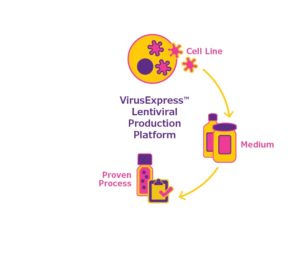Officials at MilliporeSigma say the company has bolstered its viral vector manufacturing capabilities with the launch of the VirusExpress™ lentiviral production platform. The new technology helps to overcome lentiviral production challenges and can reduce process development time by approximately 40%, based on MilliporeSigma’s experience as a CDMO, according to Angela Myers, head of gene editing & novel modalities at the company.
“Cell and gene therapies offer the potential for curative treatments and are being developed and commercialized in half the time it has taken traditional therapies,” said Myers. “We are committed to accelerating manufacturing of cell and gene therapies with the ultimate goal of getting these lifesaving treatments to patients faster. By increasing dose yields and dramatically reducing process development time, this new platform will help us reach this goal.”

Using a suspension cell line rather than an adherent-based production, coupled with a chemically defined cell culture media and process with built-in scalability, VirusExpress meets multiple market needs, claimed Myers, noting that in addition to accelerating process development, the suspension culture format simplifies upstream workflow, making processes easier to manage, adjust, and scale, and allows each batch of virus to be larger yielding more patient doses.
Suspension culture is amenable to true scaleup, she explained, while being less labor-intensive. The chemically defined medium also eliminates the safety, regulatory, and supply chain concerns related to animal- and human-derived materials.
The company points out that this new offering underscores MilliporeSigma’s continued investment in cell and gene therapies. In April, the company announced a new $110 million, 140,000-square-foot manufacturing center at its Carlsbad, California location that will double the existing production capacity and support large-scale commercial manufacturing. Today, MilliporeSigma manufactures vectors for two of the first five FDA-approved cell and gene therapies.
The cell and gene therapy market is growing rapidly and continues to show great promise. According to market research leader Arizton, the cell and gene therapy market is expected to reach more than $6.6 billion by 2024. MilliporeSigma says it has been involved in this space since clinical trials for gene therapy began in the 1990s.


